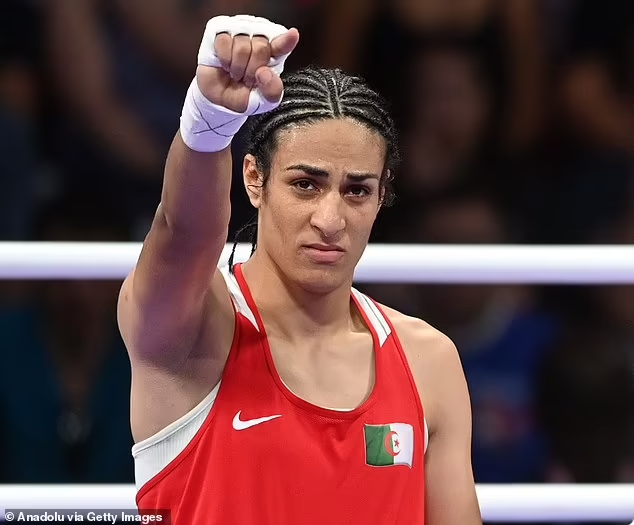Amidst the backdrop of the 2024 Paris Olympics, Algerian boxer Imane Khelif has become the center of a heated debate surrounding gender identity and societal norms. The question that has caught international attention is whether Imane Khelif is truly transgender in a country like Algeria, where changing one’s natural identity for the unnatural can be met with severe consequences, including death.

Imane Khelif has been thrust into the spotlight as accusations and rumors about her gender identity circulate. These speculations arose in the wake of her impressive performances and the global attention she garnered as an athlete from Algeria, a nation with strict laws against homosexuality and gender non-conformity. In Algeria, being gay or identifying as transgender is illegal, and those who defy these societal norms can face harsh penalties.
However, Khelif’s situation is further complicated by cultural and social dynamics. She has not publicly identified as transgender, and the claims surrounding her gender seem to have been fueled more by assumptions and misinterpretations than by any official statement from her.
The issue of mislabeling athletes based on their appearance or performance in sports is not new, but it has profound implications. Labeling someone as “male” or questioning their gender without substantial evidence can lead to a cascade of misinformation and discrimination. This is precisely the situation Khelif finds herself in, where her achievements are overshadowed by a debate that questions her identity rather than celebrates her skill.

Renowned personalities, including authors and activists, have weighed in on the issue, some of whom have contributed to the controversy. Critics argue that making baseless claims about an athlete’s gender identity is irresponsible and only serves to perpetuate stigma and bias against those who do not conform to traditional gender norms.
The controversy highlights the broader conversation about gender identity in sports and the need for a more nuanced understanding of the challenges faced by athletes from diverse backgrounds. It is essential to recognize that each individual’s identity is deeply personal and should be respected, especially in cultures where deviation from the norm can lead to severe repercussions.

Imane Khelif’s case underscores the importance of supporting athletes for their achievements and dedication rather than focusing on unfounded claims about their identity. In a world where sports are meant to bring people together, fostering inclusivity and respect is paramount.
As the global community continues to follow the developments in Imane Khelif’s story, it is crucial to approach the situation with sensitivity and empathy. The narrative should shift from questioning her identity to celebrating her accomplishments and recognizing the resilience it takes to excel in the face of adversity.
The conversation about gender identity in sports must evolve to include voices from diverse cultures and backgrounds, ensuring that athletes like Khelif are supported and uplifted for their contributions to the sporting world.
Originally written by the-sun.com



